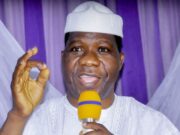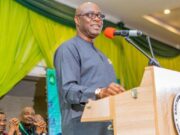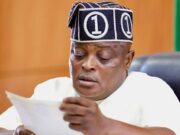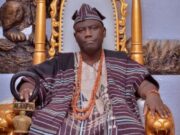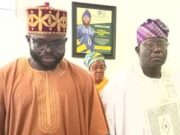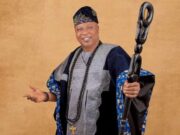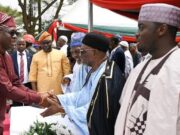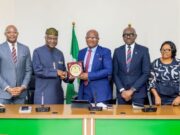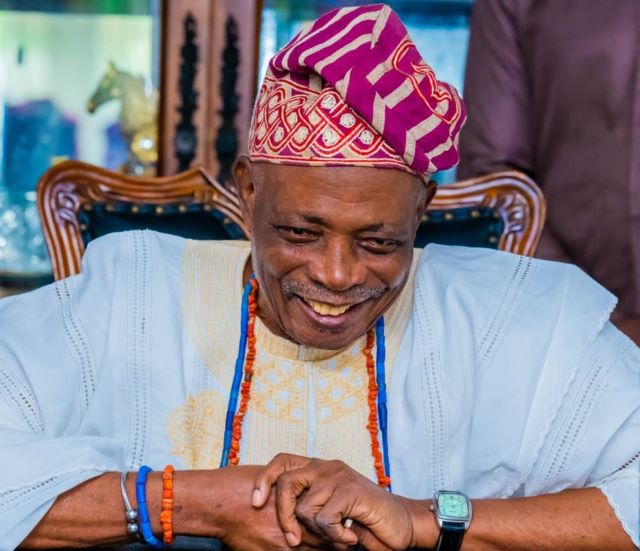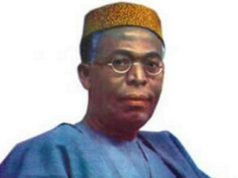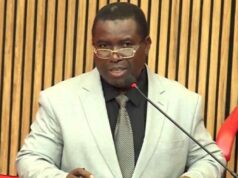All roads will lead to the historic Mapo Hall, the venue of the epoch-making coronation of Oba Rashidi Ladoja as the 44th Olubadan of Ibadanland on Friday, September 26, 2025.
For the coronation, Ibadan is preparing for a roll call of Nigeria’s crème de la crème. The event is expected to surpass any in Olubadan history, with dignitaries led by President Bola Tinubu, who has confirmed his attendance in honour of his friend.
Also expected are former Vice President Atiku Abubakar, governors, ex-governors, former ministers, traditional rulers, captains of industry, and other prominent personalities.
Governor Seyi Makinde will play host to the distinguished guests at what is already being described as the most glamorous and widely attended Olubadan coronation in history.
The coronation marks a continuation of Ibadan’s centuries-old succession tradition, widely regarded as one of the most orderly and rancour-free systems in Yorubaland.
From Ring Road to Bodija, Mokola to Oja’ba, and the surrounding axis, the city is already agog with cultural displays, drumming, and processions as residents prepare to welcome their new monarch.
Hotels across the metropolis have been fully booked, with visitors trooping in from across Nigeria and beyond.
From Dugbe to Challenge, from Gate to Ojoo, the ancient city has taken on a new look. Colourful posters, banners, and giant billboards bearing the portrait of Oba Ladoja, resplendent in royal regalia, adorn major streets and roundabouts.
Slogans such as “Long Live the Olubadan,” “Ibadan Pride, Yoruba Glory,” and “Oba Ladoja: A King for the People” beam at motorists and pedestrians alike.
The visual flood of banners and billboards adds to the festive atmosphere, turning the city into one grand canvas of celebration. At night, illuminated billboards light up the skyline, giving Ibadan a carnival-like ambience ahead of the historic coronation.
His journey
Every journey to the Olubadan throne begins with becoming a Mogaji — the head of the extended family compound. For Ladoja, this came in the 1980s when he was installed as the Mogaji of the Ladoja family of Arusa Compound, Isale-Osi, Ibadan. Ladoja became Jagun Olubadan on October 1, 1993. He was installed by the famous Olubadan Asanike. After his promotion to Jagun Olubadan, the very first rung on the Egbe Agba line, which marked his formal entry into the chieftaincy hierarchy, it became a gradual but steady climb up the ranks, with each title carrying greater responsibility within Ibadan’s traditional administration. He successfully climbed the 22 steps to reach the Olubadan throne.
For the Otun line from where Ladoja emerged, the movement is from Jagun Olubadan – Ajia – Bada – Aare Onibon – Gbonnka – Aare Egbe Omo-Oota – Lagunna – Aare Ago – Ayingun – Asaju – Ikolaba – Aare Alasa – Agba Akin – Ekefa – Maye – Abese – Ekarun Olubadan – Ekerin Olubadan – Ashipa Olubadan – Osi Olubadan – Otun Olubadan and eventually Olubadan.
In 2022, Ladoja was formally elevated to the position of Otun Olubadan, the second-in-command to the Olubadan and the highest-ranking chief on the Egbe Agba line. He thus became the most senior of the Ibadan civil chiefs, which placed him next in line to become the Olubadan.
He played a key role in nominating the late Oba Lekan Balogun and also presided over the nomination process for the late Oba Owolabi Olakulehin.”
Obstacles cleared
In 2017, when the late Governor Abiola Ajimobi elevated 21 obas in Ibadan, Ladoja stood alone with the then Olubadan of Ibadan, Oba Saliu Adetunji. His belief in the dignity and structure of the Ibadan chieftaincy system made him an outspoken critic of the attempt to tamper with its succession process at the time. He challenged the late governor in court.
When Governor Makinde reinvented the same law and re-crowned the monarchs, Ladoja, now a lone voice, stood away again. For Ladoja, “I only want to adorn one crown and that is the Olubadan crown.” He also said, “My journey on the Olubadan line is not about politics. It is a matter of tradition, identity, and service.”
He maintained that Ibadan’s chieftaincy system must not be politicised or commercialised. “Ibadan does not need multiple kings,” he argued, insisting that the hierarchical order that allows a Mogaji to one day become Olubadan is one of the city’s most democratic and egalitarian legacies.
During the coronation of the late Oba Olakulehin on July 12, 2024, the government issued a gazette introducing a new law that required all Ibadan high chiefs to accept obaship titles before they could be promoted.”
Section 4 of the amendment, titled “New Olubadan Chieftaincy Declaration,” replaced “the most Senior (High) Chief in that line” with “the most Senior Beaded Crown Oba in that line.”
Section 4 of the new law states: “The person who may be proposed as a candidate by the Line whose turn it is to fill a vacancy in the office of the Olubadan shall be the most Senior Beaded Crown Oba in that line.”
Ibadan elders then met with Ladoja and prevailed on him to take the beaded crown. Announcing his readiness to accept the beaded crown at a radio programme in Ibadan in August 2024, Ladoja said various Ibadan indigenes and non-indigenes had pressured him to accept the beaded crown to facilitate his ascension to the throne when the time came. On August 12, 2024, Oba Olakulehin, in his first official duty after his coronation, crowned Ladoja as an Ibadan oba.
For Oba Ladoja, the Arusa I and 44th Olubadan of Ibadanland, today marks the fulfilment of a lifelong dream. It is a day he had long anticipated and spoken into existence many years ago. He never left anyone in doubt that he would one day wear the crown of the Olubadan. He will go down in history as the first Olubadan from his family compound and from the community.
His words and dreams finally come to pass. In August 2024, while presenting himself for the beaded crown, he declared on the radio programme: “By the grace of God, I will become Olubadan. God has been merciful to me. My blood pressure has been stable. Anyone God has destined to become Olubadan will become Olubadan. No matter the obstacles placed in their way. I’m ready to accept Ibadan’s ceremonial beaded crown if it’s the wish of God and the good people of Ibadanland. Only God knows who becomes Olubadan. I know by the special grace of God, I will become Olubadan.” Today, he is the Olubadan of Ibadanland.
Ladoja enjoyed a cordial relationship with past Olubadans, including Oba Lana Odugade, Oba Adetunji, and the immediate-past Olubadan, Oba Olakulehin.
The 41st Olubadan of Ibadanland, Oba Adetunji (Aje Ogunguniso I), once prayed for Ladoja, declaring that he would live to become Olubadan. This prayer came after both men had stood firmly against reforms introduced by the late Governor Abiola Ajimobi, which promoted high chiefs to Obas. While many chiefs supported Ajimobi’s moves, only Oba Adetunji and Ladoja resisted, standing together through the storm. In appreciation of Ladoja’s loyalty, Oba Adetunji blessed him with prayers. For Adetunji, who was the first in his lineage to ascend the throne, he understood the rarity of such privilege. Today, history repeats itself as Ladoja becomes the first from Arusa Compound to mount the throne of the Olubadan of Ibadanland.
This coronation marks a new chapter in Ibadan’s history. Nigeria has produced traditional rulers who were once retired generals, police officers, or accomplished businessmen. Some, including past Olubadans, also served as lawmakers in both the federal and regional legislatures. In the North, Alhaji Mohammed Awwal Ibrahim, Sarkin Zazzau Suleja, was elected governor of Niger State between October 1979 and October 1983 before ascending the throne. In the South-West, the late Oba Adesoji Aderemi, the Ooni of Ife, was the only traditional ruler to have also held a political office, serving as governor of the Western Region by appointment in 1960. Ladoja, however, becomes the first in the South-West to bestride both spheres through electoral politics and monarchy. He governed Oyo State between 2003 and 2007, though his tenure was briefly interrupted by an illegal impeachment overturned by the Supreme Court in December 2006. A decade earlier, in 1993, he had been elected senator under the Social Democratic Party (SDP), representing Ibadan South Senatorial District.”
Loved, popular Oba
In history, Oba Ladoja will be remembered as one of the most popular Olubadans, judging by the overwhelming joy and acceptance that greeted his emergence. Across family compounds, streets, and major roads in Ibadan, signposts, flyers, billboards, and banners proclaim congratulations to the 44th Olubadan on his ascension. From Mokola to Mapo, from Bodija to Oke-Ado, the city wears a festive look, as though every household feels personally invested in the coronation. The atmosphere reflects the mood of a people celebrating a king deeply loved and widely admired.
Also, the array of political and traditional leaders who have paid courtesy visits to him since his emergence is a strong testimony to the affection and respect he commands. These visits, coming not only from across Ibadan but also from different parts of Oyo State and beyond, highlight the broad appeal of Oba Ladoja as well as the reverence attached to the Olubadan stool.
The steady stream of governors, lawmakers, eminent traditional rulers, and community leaders underscores that the throne of Ibadan is more than a local institution. Each visit has carried with it gestures of goodwill, messages of solidarity, and a reaffirmation that the Olubadan remains a central figure in both cultural heritage and contemporary governance.
Ladoja follows in the footsteps of some of Ibadan’s most cherished monarchs, including the late Oba Isaac Babalola Akinyele, the late Oba Yesufu Oloyede Asanike, and the late Oba Saliu Adetunji, all of whom are remembered for their bond with the masses.
Oba Ladoja’s popularity is even more compelling. His political journey is etched in the memory of the Ibadan people. His impeachment saga and the fierce battles he fought against former President Olusegun Obasanjo and the late Ibadan political warlord, Chief Lamidi Adedibu, endeared him to ordinary people as a fighter who refused to be cowed.
Civil servants remember him with fondness for paying salaries promptly, while the wider public embraced his humility and simplicity. Unlike many politicians, he shunned pomp, appearing constantly in his trademark Ankara and cap, a reflection of his closeness to the grassroots. To traders in Oje, artisans in Mokola, and market women in Dugbe, Ladoja was one of their own.
His popularity rubbed off on his successors as governor in Oyo State. The late Governor Abiola Ajimobi benefited from Ladoja’s enduring goodwill, while the incumbent Governor Makinde also rode on that same wave of grassroots acceptance to clinch victory in 2019.
The coronation of Oba Ladoja, to the people of Ibadan, is the crowning of a figure who has long commanded their affection and loyalty. For many, the banners and posters across the city are more than decoration; they are living testimonials of love, resilience, and collective memory. They celebrate not just a monarch, but a man who has fought battles, endured trials, and now ascends as custodian of Ibadan’s traditions and symbol of its future.
God save the King!
Credit: punchng.com







